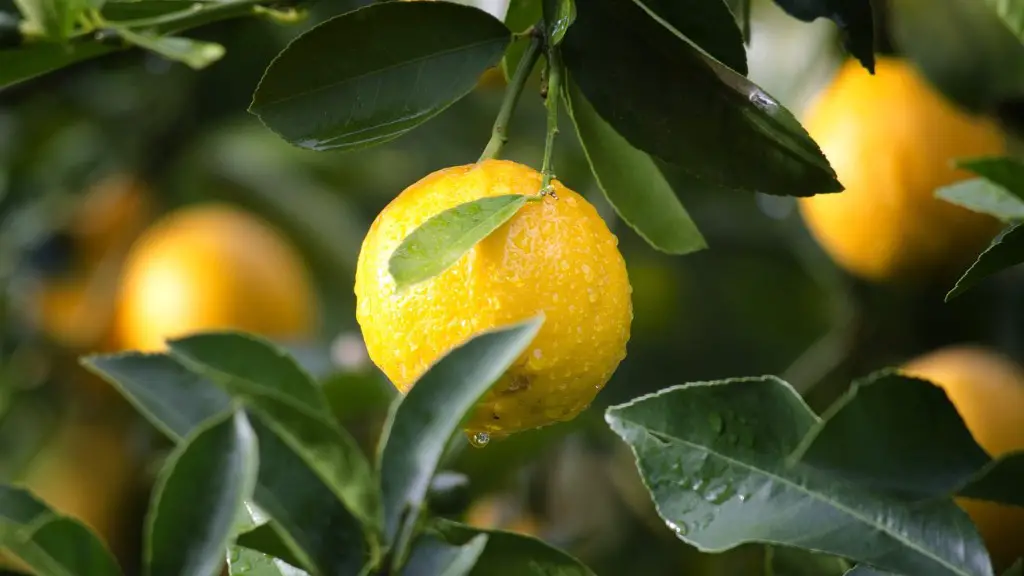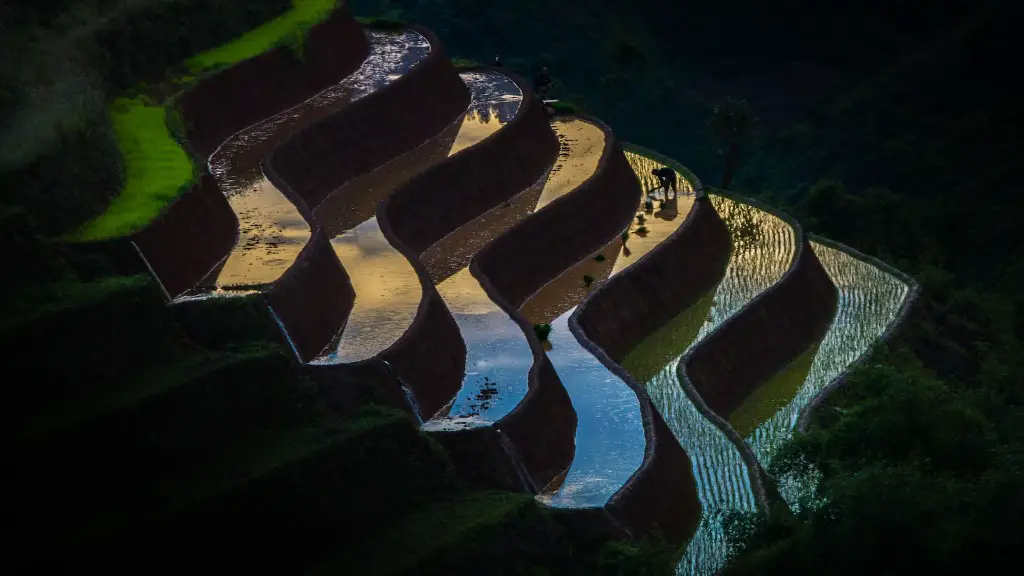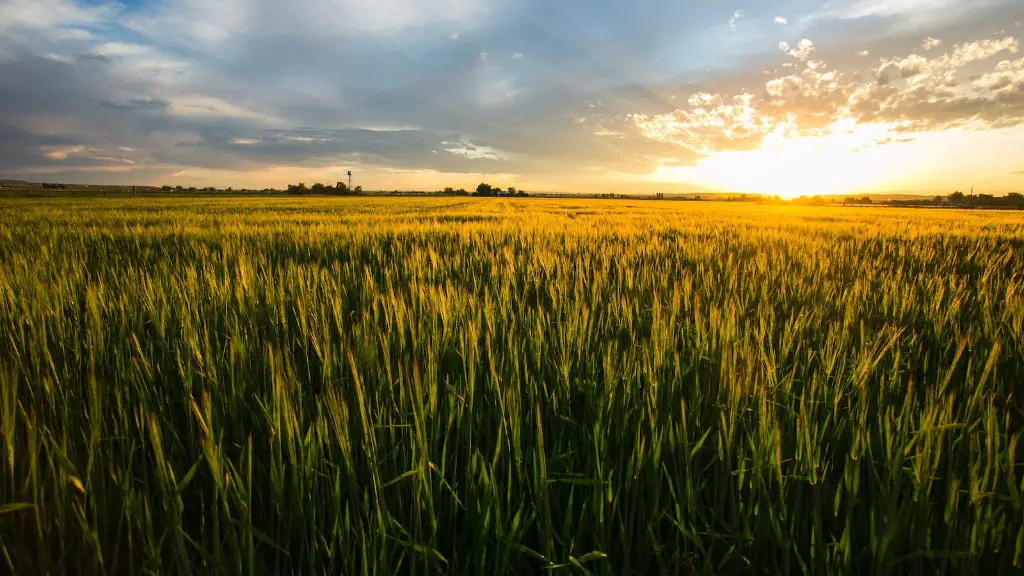Agriculture is crucial for human society as it helps with the production and distribution of food, medicine, and other materials vital to human needs. It also helps to shape civilisations by developing economic structures and providing jobs. Agriculture is essential in providing a connection between cultures and allowing them to grow and interchange ideas.
Agriculture fertilises the land, enabling the production of crops, timber and other natural products. It also helps with stabilising and conserving the environment, reducing the impacts of weather and climate change, and creating habitats for other species. How we manage and use these resources affects the ability of future generations to use them and hence, it is essential to have sustainable agricultural practices in place.
Agriculture is an important tool in fighting hunger and poverty. By growing more food, it allows for a rise in food security. It also helps to meet the increasing demand for food as the population grows. Moreover, it can help to revitalise rural communities and provide employment opportunities, thus reducing poverty.
Agriculture is a key driver of economic growth and development. It contributes to the well-being of many countries by providing food and income, and producing a range of goods and services. In addition, it plays an important role in providing services such as conserving biodiversity, protecting natural resources, enhancing water management and storing carbon.
Finally, agriculture helps to preserve culture and traditions. By growing food, it ensures the preservation of traditional methods of farming and helps to promote traditional recipes and food-linked customs and celebrations. Moreover, it preserves cultures and knowledge passed on through the generations in different parts of the world.
Impacts of Climate Change on Agriculture
Climate change has escalated rapidly in recent decades and develops a disproportionate impact on agriculture due to its reliance on the climate for crop production. Climate change influences the hydrological cycle, shifting precipitation patterns, resulting in extreme weather conditions, increased evaporation and crop failure. It also alters soil properties, increases temperatures and leads to increased pests and diseases in crops, leading to massive losses in agricultural productivity.
Moreover, climate change leads to the intensification of weather-related disasters, such as floods, droughts, or hurricanes, which can have a major impact on crops and livestock. As climate change increases, farmers may have to adapt their crop varieties, precision farming techniques and water-saving methods to stay ahead of the rising global temperatures.
The changes in climate has already impacted farmers, leading to devastating crop and livestock losses. In some countries, the decrease in crop yields and waning resources have caused a decline in the agricultural sector. In areas already struggling with poverty, this decline has contributed to food insecurity, malnutrition, and further economic difficulties.
Developing countries are especially vulnerable to climate change induced disasters such as storms, droughts, and floods, as their resources are limited. The agricultural sector in these countries has been hit the hardest due to their insufficient agricultural infrastructure and limited resources. With rising global temperatures, the effects of climate change can no longer be ignored.
The Potential of Green Technologies and Sustainable Agriculture
Green technologies can help reduce the damaging effects of climate change on agriculture while also contributing to the sustainability of the environment. Green technologies refer to any technology that uses renewable energy, reduces carbon emissions, and promotes efficient and sustainable use of resources. Technologies such as solar panels, wind turbines, and hydroelectric power can be integrated into existing agricultural systems to improve efficiency.
Sustainable agriculture is an important tool in managing climate change. Sustainable agriculture is an approach to food and farming that works to reduce environmental damage, increase environmental sustainability and enhance human health. Sustainable agriculture focuses on the conservation of soil, water, energy, and biodiversity, encouraging eco-farming, crop rotation, and organic fertilisers to reduce impacts of climate change.
Climate-resilient agricultural practices that conserve, manage, and utilize resources in an efficient manner, will be essential to mitigating the impacts of climate change on agriculture. From regenerative farming to agroecology and precision farming, there are many practices that can be implemented to make agricultural production more resilient to climate change.
The use of modern technology and data science is set to revolutionize the way we farm and respond to climate change. Artificial intelligence and machine learning applied in the agricultural sector can be used to identify climate-vulnerable areas and areas with greater opportunity and risk. Furthermore, it can enable better crop selection, precision irrigation systems, and enhanced crop and disease resistance.
Benefits of Organic Agriculture
Organic agriculture is a farming method that utilizes natural products and processes and does not involve the use of synthetic fertilizers, pesticides, or genetically modified crops. It is a form of sustainable farming that focuses on protecting the environment and improving soil health. Organic farming methods enhance biodiversity and reduce pollution.
Organic agriculture reduces the risks associated with traditional agricultural practices as it utilises natural inputs and operates within natural systems. This helps to maintain the soil structure and quality, as well as contributing to increased yields and promoting plant and animal health.
Moreover, organic agriculture is beneficial for human health as organic foods tend to be richer in nutrition and do not contain any petroleum-based inputs, meaning they are free from harmful toxins and pollutants. Organic agriculture also increases access to nutritious food, as organic producers often sell directly to local communities.
Organic agriculture can also benefit farmers economically, as it can provide higher yields at a lower cost. Organic products are in demand, meaning there is often a premium on organic produce, providing an additional source of income for farmers.
Enhancing Food Security through Agriculture
A secure food supply is essential for the well-being of individuals and societies. Agriculture is an essential part of the global food system and plays an important role in increasing food security. Agriculture can be used to increase the availability of nutritious food, promote the safe use of food and nutrition, and provide access to food for vulnerable populations.
In order to secure food for the world’s population, an increase in agricultural production is necessary. This can be achieved through improving access to inputs such as seeds, fertilizers, and irrigation systems, as well as through the adoption of newer, climate-resilient farming practices. Moreover, food security can be improved through reducing food waste by using digital tools and technologies to reduce post-harvest losses and food processing waste.
In addition, digital technology can be used to provide quick access to marketing information, helping farmers overcome production and marketing challenges. Furthermore, digital technologies can be used to provide reliable weather and climate information, to ensure farmers better prepare for extreme weather events.
In order to ensure food security, agricultural policies have to be implemented to ensure better access to inputs and technologies, increase the productivity of smallholder farmers, and provide access to inputs and investments. Moreover, measures have to be taken to reduce poverty, hunger, and malnutrition through the promotion of agricultural production and food access.
Economic Challenges in Agriculture
Agriculture still faces many economic challenges, such as access to capital, access to infrastructure, poor access to markets, and price volatility. Smallholder farmers are especially vulnerable to economic shocks, with limited access to financial services and technology. High food prices, low wages, and low profit margins make it difficult for smallholder farmers to make a living.
In order to make agriculture more profitable, governments have to provide support for smallholder farmers and make investments in agricultural infrastructure. This can be done by increasing access to microfinance and investing in more efficient technologies such as precision irrigation systems, conserving topsoil, and providing access to digital marketplaces.
In addition, policy measures have to be taken to reduce trade barriers, protect smallholders from exploitation, and increase access to local, regional and international markets. Furthermore, investments have to be made in capacity-building and training, helping farmers to become more efficient and competitive.
Finally, governments also need to reduce the reliance on fossil fuels, agrochemicals, and chemical fertilisers, and support the move towards sustainable practices such as regenerative and organic farming. Sustainable farming techniques not only benefit the environment, but they can also help farmers increase their income, providing a more secure and profitable future.





